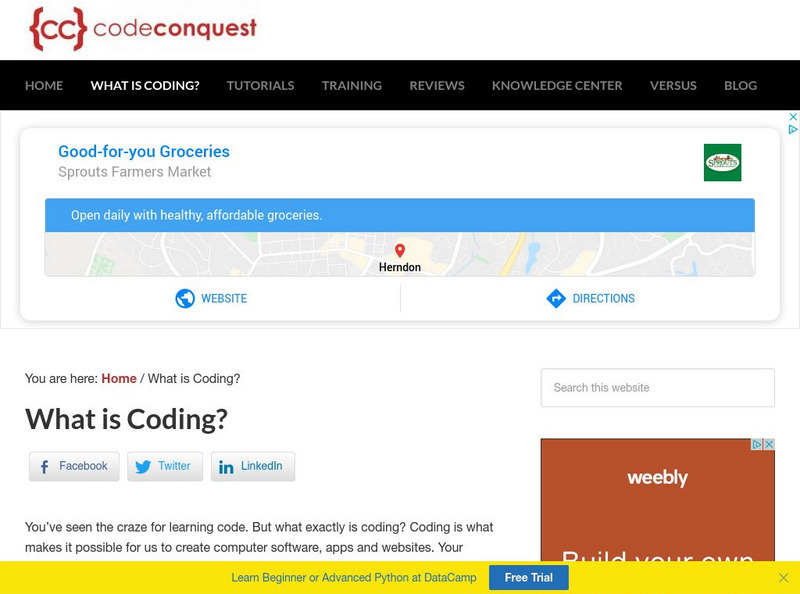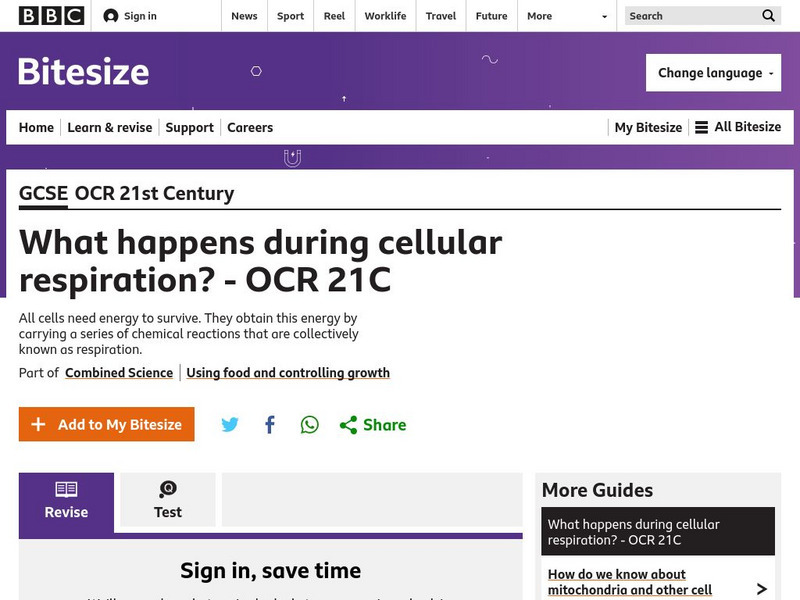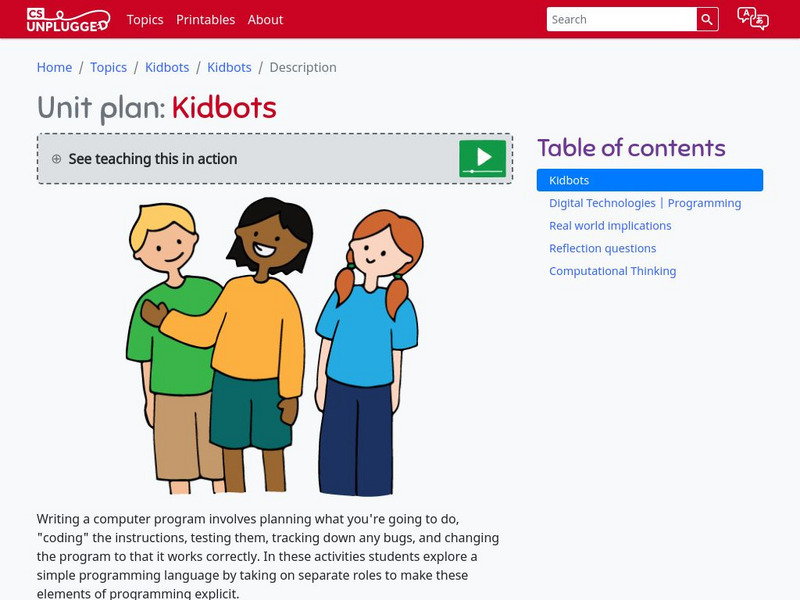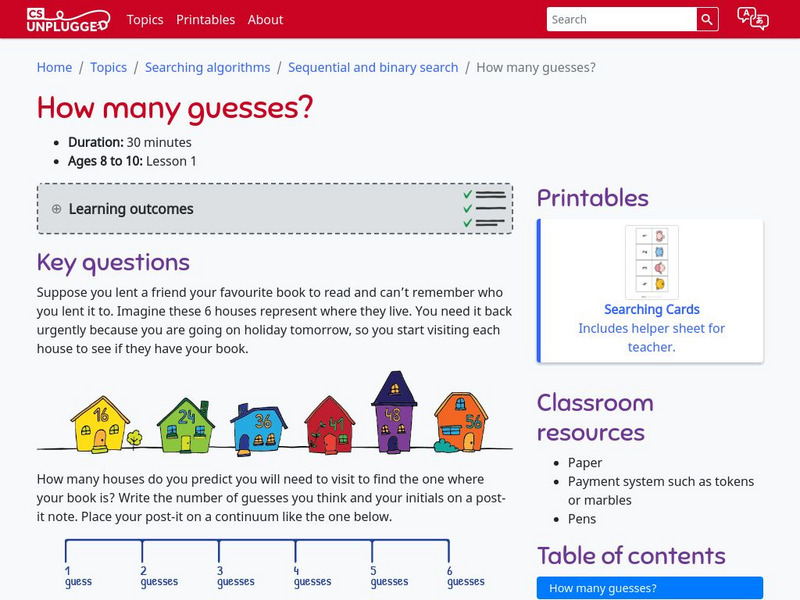Other
Code Monkey: Learn Real Coding
CodeMonkey is an engaging online game that teaches real computer programming to children as young as 9.
John Wiley & Sons
Wiley: Pseudocode Example: Game of Monopoly
An easy example of pseudocode, the language for designing algorithms, for playing the game of monopoly.
University of Canterbury
University of Canterbury: Cs Unplugged: Error Detection
This activity is a magic trick where the demonstrator is "magically" able to figure which one out of dozens of cards has been turned over, using the same methods that computers use to figure out if an error has occurred in data storage.
BBC
Bbc: Bitesize: Introduction to Computational Thinking
Find out about the four cornerstones of computational thinking, and how these contribute to task completion and learning.
Other
Code Conquest: What Is Coding?
Don't know the first thing about coding? Here is a beginner's tutorial which will give learners all the background information for coding.
BBC
Bbc: Gcse Bitesize: What Happens During Cellular Respiration? Ocr 21 C
This lesson focuses on what happens during cellular respiration including how energy is released as APT and why organisms need energy in that form. A link to a test is provided.
University of Canterbury
Cs Unplugged: Unit Plan: Kidbots
Writing a computer program involves planning what you're going to do, "coding" the instructions, testing them, tracking down any bugs, and changing the program to that it works correctly. In these activities students explore a simple...
Code.org
Code.org: Cs Fundamentals: Lesson 4: Debugging With Laurel
Young scholars will practice debugging in the "collector" environment. Students will get to practice reading and editing code to fix puzzles with simple algorithms, loops and nested loops.
University of Canterbury
Cs Unplugged: Quick Card Flip Magic
Every item of data that we store and transmit has extra bits added to it to prevent errors. Can you find the error and correct it?
University of Canterbury
Cs Unplugged: How Many Guesses?
Use sequential and binary search strategies to figure out who has your favorite book.
Other
Beanz: Code Snippets: Variables
Learn how variables in code work in several computer languages.
Goodwill
Gcf Global: Computer Science: Sequences, Selections, and Loops
Learn more about sequences, selections, and loops.
Other
Beanz: How We Designed a School Robot
Learn how an all girls high school robotics team designed then built a robot to compete in competitions.
Khan Academy
Khan Academy: Procedures With Return Values
Practice programming problems using procedures with return values.
Khan Academy
Khan Academy: Nested Conditionals
Learn about when a program selects one of many paths, it can use nested or chained conditionals.
Khan Academy
Khan Academy: Conditionals With If, Else, and Booleans
Learn how omcputer programs also make decisions, using Boolean expressions (true/false) inside conditionals (if/else).
Khan Academy
Khan Academy: Compound Booleans With Logical Operators
Learn how to make shorter and more expressive code by combining simple Boolean expressions using logical operators (and, or, not) to create compound Boolean expressions.
Khan Academy
Khan Academy: Conditionals With If, Else, and Booleans
A tutorial explainning the use of if, else, and Boolean logic in computer programming.
Khan Academy
Khan Academy: Nested Conditionals
Learn how nested conditionals work in computer programming.
Khan Academy
Khan Academy: Compound Booleans With Logical Operators
Learn about computer programming using compound booleans with logical operators.
Other
Alliance Software: An Introduction to Software Development Methodologies
Find out about the three main software developement methods.
Other popular searches
- Cell Energy Atp
- Atp Aerobic Anaerobic
- Atp and Adp
- Atp Lecture
- Cell Function Atp
- Energy Atp
- Atp Cp
- Atp Cap
- Atp Synthase
- Atp Molecules
- Atp Adp
- Atp, Aerobic, Anaerobic

















